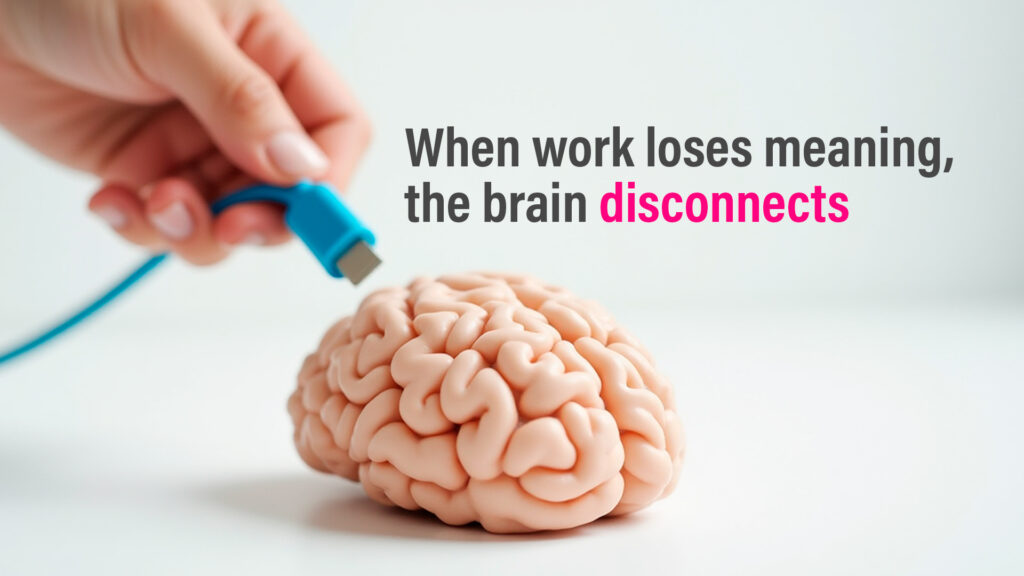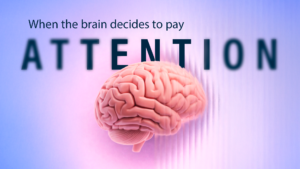
AI and Human Connectivity: Toward a Neuroscience of Real Interactions in the Corporate Environment
Purposeful work and neurobusiness. In a labor market that’s increasingly automated, competitive, and fast-paced, phenomena like Quiet Quitting and the Great Resignation have brought to light an uncomfortable truth: employees are no longer willing to sacrifice mental health or personal purpose for organizations that fail to provide meaning. In this context, Neurobusiness, as an emerging discipline, offers powerful insights into how the brain responds to meaningful work — and what happens when that sense of purpose fades.
What is Purposeful Work?
The study “Meaningful Work, Well‑Being, and Health: Enacting a Eudaimonic Vision” (Kim et al., 2023) explores how meaningful work — rooted in values, intrinsic motivation, and ethics — directly impacts health and well-being. This eudaimonic vision, inspired by Aristotle, places personal and professional fulfillment at the center of work.
The findings show that purposeful work not only boosts performance and engagement but also protects physical and mental health. Conversely, meaningless work under poor conditions can lead to emotional exhaustion, cynicism, and cognitive disengagement.
Quiet Quitting: When the Brain Protects Itself
Quiet Quitting isn’t just “doing the bare minimum.” It’s a neurophysiological defense mechanism. When the brain senses that effort is not reciprocated with recognition, purpose, or well-being, it activates conservation systems: emotional detachment, reduced effort, and withdrawal from social engagement at work.
From a Neurobusiness perspective, this reflects deactivation of the brain’s dopaminergic system — essential for sustained motivation. Without purpose or emotional-cognitive rewards, the brain shifts into energy-saving mode, focusing only on survival.
Neurobusiness and Purpose: The Brain’s Link
Neurobusiness studies how decisions, emotions, and social dynamics in the workplace affect the brain and human behavior. In this framework, purpose is not a philosophical concept but a powerful neurological trigger.
Organizational neuroscience research shows that meaningful work activates key brain areas such as:
- The ventromedial prefrontal cortex, linked to value-based decision-making.
- The limbic system, regulating positive emotions like gratitude and pride.
- The dopaminergic pathway, which fuels sustained motivation.
When people perceive their work as aligned with their personal values, these brain systems stay active, driving engagement, creativity, and resilience.
The Great Resignation: A Collective Signal
The Kim et al. study also relates to global phenomena like the Great Resignation, highlighting a massive disconnection among millions of workers. It’s no longer just about better pay, but about seeking meaningful, humane, and sustainable work experiences.
The message is clear: people want to feel that what they do matters. They crave environments where they can be authentic, collaborate with trust, and maintain a healthy work-life balance. And this is not optional — it’s a biological, cognitive, and emotional need.
Building Purpose-Driven Work Cultures
From a Neurobusiness perspective, organizations can implement strategies to stimulate purpose both neurologically and emotionally. Recommendations from the study include:
- Fostering alignment between personal and organizational values.
- Creating psychologically safe spaces where people can express themselves authentically.
- Encouraging ethical, emotionally intelligent leadership.
- Setting meaningful goals and communicating the impact of work.
- Promoting true work-life balance.
These strategies benefit not just individuals, but also enhance productivity, innovation, and long-term organizational sustainability.
Purposeful work and neurobusiness
Purposeful work is no longer a “nice-to-have” or emotional perk. It’s a neurobiological necessity. Quiet Quitting and the Great Resignation are warning signs of organizations failing to meet this need.
With insights from Neurobusiness, we have the tools to design workplaces that respect the human nature of work, activate the brain’s well-being systems, and elevate purpose as a core performance driver. The future of work will be meaningful — or it won’t be at all.
References
- Kim, E. S., Lee, M. T., & Park, N. (2023). Meaningful work, well-being, and health: Enacting a eudaimonic vision. The Journal of Behavioral Science & Policy, 9(2), 69–84. https://doi.org/10.1037/bsp0000334
- 🔗 https://pubmed.ncbi.nlm.nih.gov/37623156/
Continue reading more articles: https://neurobusiness.us/blog/


